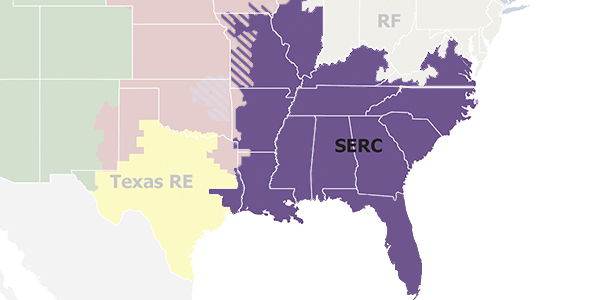By Rich Heidorn Jr.
QUEBEC CITY, Quebec — Less than two months after taking over the footprint of the Florida Reliability Coordinating Council, SERC Reliability is planning changes to its board structure and operations, CEO Jason Blake said last week.
In briefing the NERC Board of Trustees on the July 1 transition, Blake thanked FRCC CEO Stacy Dochoda, saying, “She opened the doors. She was a complete partner.” He also thanked the Midwest Reliability Organization — which expanded last year to absorb the footprint of the SPP Regional Entity — for its advice on the transition and NERC Chief Technology Officer Stan Hoptroff for help transferring more than 300,000 files from FRCC.
Three members of the FRCC Board of Directors joined SERC’s Board Executive Committee with the transition.
Blake said SERC is using the transition as an opportunity to improve by benchmarking its operations against FRCC. “That’s resulted in us reorganizing and rethinking how we do a lot of our work,” he said.
SERC also offered jobs to the 13 people left at FRCC at the July 1 transition, and all accepted, Blake said. “The cool thing is … they’re not all concentrated in one spot. They’re actually distributed across our entire organization.”
Three of the new hires are in management positions, including John Odom, who was FRCC’s vice president of compliance, enforcement and reliability performance.
“One of the key things that we have tasked [Odom] to do is to ensure that … we understand integration didn’t stop on July 1. To truly integrate that means that all of the Florida companies have to become completely ingrained and embedded in all of our processes and programs. And we are also very cognizant that of course there will be some growing pains as we move forward.”
Anticipating the integration, SERC formed a board committee to review its structure and research governance best practices, SERC Chair Greg Ford said. “We wanted to go beyond just making changes that felt right,” he said.
As a result, SERC plans to reduce the size of its Board of Directors, which previously allowed seats for all members.
“We went from [more than] 50 to almost 90 entities that could be on that board [with FRCC’s integration]. So, we’re going from that very large board down to an 18-seat board,” said Ford, CEO of Georgia System Operations Corp. At least three of the directors will be independent, Ford said, including representation on the Compensation Committee.
The proposal will be brought to the SERC board for approval in October and the NERC board in November. SERC expects to have its new bylaws fully effective when it signs a renewed delegation agreement with NERC in 2021, Ford said.




